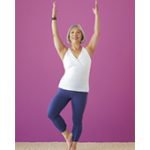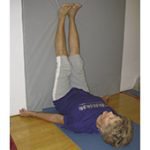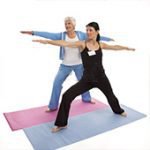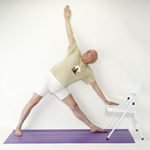New Book by BHI Clinician
Month: June 2015
New Book by BHI Clinician
As described on Amazon: An internist and clinical instructor at Harvard Medical School fuses Eastern practices with cutting edge Western medicine to help you connect body and mind to transform your health today and tomorrow.
Over the course of her decades-long career, Dr. Eva Selhub has discovered a fundamental truth: health, happiness, and strength are often a direct result of the affirmative choices we make, regardless of whatever genetic or environmental setbacks we face. When our bodies get sick, we often feel out of control—a cycle of fear that leaves us feeling vulnerable and helpless, desperate for medication or tests that will make us well. But illness shouldn’t make us afraid. We do have control over our wellbeing, contends Dr. Selhub, and we can make choices that can positively influence any health issue, big or small, acute or chronic. It’s all about perception—how you view yourself, your resources, and your circumstances. Drawing on findings in the emerging field of epigenetics, she reveals how we can bolster the mind-body connection and actually change the way our DNA operates.
In Your Health Destiny, Dr. Selhub teaches you how to pay attention to your body’s signals, to understand what these signals mean, and to make the right choices that will bring amazing results to your health, now and for the future. You will discover ways to prevent disease from happening or getting worse; and even find that you can reverse the disease process all together.
We have more power than we think. Your Health Destiny shows you how to harness it to improve your life. Click here for more information.
Yoga for Every Body
Believe it or not, yoga is not just for 20-somethings in tights, carrying specialty coffees in one hand and yoga mats in the other.
You can do yoga at any age — really! And the benefits are just as significant as we age as they are for younger generations.
Many scientific studies show yoga to produce an abundance of benefits. Yoga is particularly helpful for seniors dealing with joint stiffness, low back pain, balance problems and depression. That said, it’s important to find the appropriate class for your health and level of conditioning. We encourage you to consult with your healthcare provider before joining a yoga class or trying the poses below.
The following provides a brief overview of yoga benefits for seniors and a glimpse at poses that support those benefits. The poses you see here can be made even gentler, or can be more advanced as your practice evolves.
 1. Gain greater balance, body awareness and concentration: The American Academy of Orthopaedic Surgeons estimates 1 out of every 2 women and 1 out of every 4 men over 50 will suffer a fracture related to a fall. Yoga balance poses help us to sync communication between the right and left hemispheres of the brain, improving our agility. Yoga also stimulates the nervous system and the brain, thereby sharpening memory and powers of concentration.
1. Gain greater balance, body awareness and concentration: The American Academy of Orthopaedic Surgeons estimates 1 out of every 2 women and 1 out of every 4 men over 50 will suffer a fracture related to a fall. Yoga balance poses help us to sync communication between the right and left hemispheres of the brain, improving our agility. Yoga also stimulates the nervous system and the brain, thereby sharpening memory and powers of concentration.
Tree Pose: Improves balance and focus
 2. Reduce stress and anxiety, and improve sleep. A number of studies have shown that yoga can help reduce stress and anxiety. By doing repetitive postures and focusing on breathing you can create a positive and contented state of mind while shifting the body into a state of relaxation.
2. Reduce stress and anxiety, and improve sleep. A number of studies have shown that yoga can help reduce stress and anxiety. By doing repetitive postures and focusing on breathing you can create a positive and contented state of mind while shifting the body into a state of relaxation.
Bridge pose: strengthens your lower back while supporting relaxation.
Legs-up-wall pose: Gentle release, while helping recirculate blood back to the heart.
 3. Increase bone density and strengthen bones: After age 40, we start to lose bone density each year, and eventually can lose about a half-pound of muscle per year for each year we’re not regularly engaged in resistance training. Yoga postures can significantly slow this trend, while improving posture and spinal health, and reducing back pain.
3. Increase bone density and strengthen bones: After age 40, we start to lose bone density each year, and eventually can lose about a half-pound of muscle per year for each year we’re not regularly engaged in resistance training. Yoga postures can significantly slow this trend, while improving posture and spinal health, and reducing back pain.
Warrior II Pose: Strengthens the quadriceps and improves hip flexibility
 4. Increase Flexibility: It is not a ‘requirement’ that we stiffen and tighten as we age. Yoga offers a gentle approach to improving flexibility by lengthening the spine, which helps improve nerve conduction to all the organs.
4. Increase Flexibility: It is not a ‘requirement’ that we stiffen and tighten as we age. Yoga offers a gentle approach to improving flexibility by lengthening the spine, which helps improve nerve conduction to all the organs.
Triangle Pose: Good for people with arch problems or flat feet, the triangle pose is also good for hip flexibility and balance
 5. Improve many internal processes. Many studies show that yoga improves digestion and blood circulation, lowers blood pressure, regulates blood sugar and cholesterol, and strengthens your immune system.
5. Improve many internal processes. Many studies show that yoga improves digestion and blood circulation, lowers blood pressure, regulates blood sugar and cholesterol, and strengthens your immune system.
Seated Twist: Encourages waste materials to move and stimulates circulation to the digestive organs.
For more information, or to learn more about what yoga classes might be right for you, visit www.bensonhenryinstitute.org or email Director of Yoga Programs, Laura Malloy, LICSW lmalloy@partners.org.
Resilient Kids Program
Does your child have a health condition that is caused or made worse by stress?
Join us for
Resilient Youth: A 6-Week Mind Body Program
This interactive, engaging, research-validated program gives teens, ages 12-18, the self-care skills they need to reduce physical and emotional symptoms and move through life’s challenges with greater resiliency. To register click HERE and select 6-session program:
Your child will learn:
• How stress affects thoughts and feelings
• Meditation methods that can reduce symptoms and improve physical health, such as deep breathing, mindfulness and imagery
• How to foster positive thoughts and attitudes
• How to develop long-lasting positive habits that can build personal resiliency over the long-term
Leadership: This program is led by Rana Chudnofsky, Director of the BHI Education Initiative.
Parent Group: Parents can make a significant difference in helping their children reduce stress, while reducing their own stress by participating in a separate 6-session stress-reduction and resiliency building program in the same building.
Please call for current pricing. These services are not covered by insurance.
For more information, please contact Marilyn Wilcher at 617-643-6035 or mwilcher@partners.org.
To register, click HERE and select 6-session program.
Resiliency Research With Teens
Amidst reports that rank teens among the most stressed generation in the country, a new study offers hope for helping kids effectively manage stress and build long-term resiliency.
A pilot study, published in the spring issue of the journal Advances, describes how the Benson-Henry Institute’s stress-reduction/resiliency-building curriculum helped a group of Boston-area high school students significantly reduce their anxiety levels, increase productivity and effectively manage stress over time.
This may be just the right treatment for kids who report feeling more stress than all other age groups. The 2014 annual survey of the American Psychological Association found that teens reported experiencing more stress than all other age demographics. The most significant sources of stress include financial insecurity, conflict at home and with peers.
Experiencing high levels of stress has surprisingly significant long-term implications, including everything from physical and psychological health problems, to poor academic performance and an inclination toward harmful lifestyle choices.
For over 30 years, the BHI has been working to prevent these short- and long-term consequences through its Resilient Youth (formerly known as the Education Initiative) program. Program directors Rana Chudnofsky and Laura Malloy train educators in a curriculum that teaches on the science of stress and relaxation, as well as how to use relaxation strategies such as breathing and imagery, and positive psychology techniques such as reframing one’s thoughts.
In this latest study, 12 teachers from the Edward M. Kennedy School received six hours of training in the resiliency curriculum, which they then implemented with students over the course of six to eight weeks, depending on class schedules.
Students who received the curriculum reported significantly less perceived stress, less anxiety and a greater ability to manage stress and practice healthy lifestyle behaviors. This was true immediately after program completion as well as a year after the program, indicating that it is effective in both the short- and long term.
Researchers hope to build on this evidence with future larger studies. Specifically, Resilient Youth directors are interested in understanding which aspects of the resiliency curriculum are most effective, what stressors it’s most helpful for and how long students continue to use the skills they learn.
“It’s important for us to continue to expand our research- not only to help us continually refine and improve the program, but also to demonstrate to educational and political leadership that this work is worth investing in on a broad scale for the benefit of our children,” said senior program director, Marilyn Wilcher.
Amidst reports that rank teens among the most stressed generation in the country, a new study offers hope for helping kids effectively manage stress and build long-term resiliency.
A pilot study, published in the spring issue of the journal Advances, describes how the Benson-Henry Institute’s stress-reduction/resiliency-building curriculum helped a group of Boston-area high school students significantly reduce their anxiety levels, increase productivity and effectively manage stress over time.
This may be just the right treatment for kids who report feeling more stress than all other age groups. The 2014 annual survey of the American Psychological Association found that teens reported experiencing more stress than all other age demographics. The most significant sources of stress include financial insecurity, conflict at home and with peers.
Experiencing high levels of stress has surprisingly significant long-term implications, including everything from physical and psychological health problems, to poor academic performance and an inclination toward harmful lifestyle choices.
For over 30 years, the BHI has been working to prevent these short- and long-term consequences through its Resilient Youth (formerly known as the Education Initiative) program. Program directors Rana Chudnofsky and Laura Malloy train educators in a curriculum that teaches on the science of stress and relaxation, as well as how to use relaxation strategies such as breathing and imagery, and positive psychology techniques such as reframing one’s thoughts.
In this latest study, 12 teachers received six hours of training in the resiliency curriculum, which they then implemented with students over the course of six to eight weeks, depending on class schedules.
Students who received the curriculum reported significantly less perceived stress, less anxiety and a greater ability to manage stress and practice healthy lifestyle behaviors. This was true immediately after program completion as well as a year after the program, indicating that it is effective in both the short- and long term.
Researchers hope to build on this evidence with future larger studies. Specifically, Resilient Youth directors are interested in understanding which aspects of the resiliency curriculum are most effective, what stressors it’s most helpful for and how long students continue to use the skills they learn.
“It’s important for us to continue to expand our research- not only to help us continually refine and improve the program, but also to demonstrate to educational and political leadership that this work is worth investing in on a broad scale for the benefit of our children,” said senior program director, Marilyn Wilcher.
Monthly Dose of Relaxation
Simply paying attention to the sensations of breathing is one of the most popular forms of meditation, and one of the easiest to grasp.
As babies, we naturally breathed from our bellies, not our chests. Belly breathing is the most healthful method of breathing because it corresponds with the greatest amount of oxygen exchange.
Click HERE for this months diaphragmatic breathing meditation.



